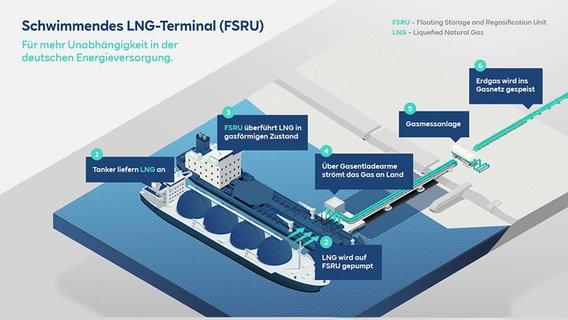As Europe’s largest economy strives to secure its energy future, Germany is rapidly expanding its reliance on liquefied natural gas (LNG) to reduce dependency on Russian pipeline gas. In a decisive shift driven by geopolitical tensions and energy security concerns, Berlin has accelerated investments in LNG infrastructure and diversified its supply sources. This strategic pivot marks a significant transformation in Germany’s energy landscape, signaling both challenges and opportunities as the nation navigates the complex transition away from Russian gas imports.
Germany Accelerates LNG Infrastructure Development to Secure Energy Independence
In a strategic pivot to diversify its energy sources, Germany is rapidly expanding its liquefied natural gas (LNG) infrastructure amid growing concerns over reliance on Russian gas supplies. The government has greenlit multiple projects to construct new LNG import terminals along the North Sea coast, aiming to increase annual import capacity by over 20 billion cubic meters within the next five years. This aggressive infrastructure push is coupled with streamlined regulations and public-private partnerships that expedite development timelines while ensuring environmental standards are met.
Key aspects of Germany’s LNG infrastructure development include:
- Construction of floating storage and regasification units (FSRUs) to provide flexible and rapid deployment options.
- Upgrading existing pipeline connections to integrate LNG terminals seamlessly into the national gas network.
- Securing long-term LNG supply agreements with diverse global partners including the US, Qatar, and Algeria.
- Implementing advanced monitoring systems to optimize supply chain efficiency and environmental safety.
| Project | Location | Capacity (bcm/year) | Expected Completion |
|---|---|---|---|
| Brunsbüttel FSRU Terminal | Schleswig-Holstein | 8.0 | 2025 |
| Wilhelmshaven LNG Terminal | Lower Saxony | 10.0 | 2026 |
| Lubmin LNG Hub | Mecklenburg-Vorpommern | 5.0 | 2027 |
Balancing Energy Security and Climate Goals Amid Growing LNG Imports
Germany’s pivot toward increased liquefied natural gas (LNG) imports represents a strategic response to the geopolitical complexities affecting its traditional gas supplies. As Russian pipeline gas dwindles, LNG terminals are rapidly expanding to secure reliable energy access. This transition, however, carries a complex environmental narrative. While LNG is seen as a cleaner alternative to coal and oil, its production and transport contribute non-negligible emissions. Industry experts emphasize that the increased LNG reliance is a temporary bridge, crucial for energy stability but challenging Germany’s commitment to long-term decarbonization.
Balancing these competing priorities demands innovative policy frameworks that:
- Encourage investment in renewable energy infrastructure,
- Implement stricter regulations on methane leakage throughout the LNG supply chain,
- Promote energy efficiency initiatives across industry and households,
- Support research into carbon capture and storage technologies.
Energy experts warn that without such measures, LNG could inadvertently delay Germany’s ambitious climate targets by locking in fossil fuel dependency beyond the medium term.
| Aspect | Benefits | Challenges |
|---|---|---|
| LNG Imports | Energy security, supply diversification | Higher lifecycle emissions, infrastructure costs |
| Climate Goals | Emission reduction targets, renewable energy growth | Investment needs, policy alignment |
Policy Recommendations for Sustainable Transition from Russian Gas to LNG
To ensure a resilient and environmentally responsible transition, policymakers should prioritize investment in modern LNG infrastructure that minimizes methane leakage and optimizes supply chain efficiency. This includes expanding import terminals equipped with state-of-the-art regasification technology and enhancing pipeline connectivity to distribute LNG across Germany seamlessly. Governments are also urged to implement stringent regulatory frameworks that incentivize cleaner practices among LNG producers and foster transparent monitoring of emissions throughout the LNG value chain.
Equally important is fostering diversified energy partnerships beyond traditional suppliers to mitigate geopolitical risks and price volatility. Supporting domestic research on renewable gas alternatives such as green hydrogen can complement LNG imports and accelerate Germany’s long-term energy independence. The following table outlines key policy focus areas with their associated strategic benefits:
| Policy Area | Strategic Benefit |
|---|---|
| Infrastructure Modernization | Enhanced supply security and reduced carbon footprint |
| Regulatory Enforcement | Ensures environmental compliance and market transparency |
| Diverse Energy Partnerships | Mitigates geopolitical risks and stabilizes prices |
| Innovation in Renewable Gases | Supports long-term decarbonization goals |
Future Outlook
As Germany accelerates its pivot toward liquefied natural gas, the country’s energy landscape is undergoing a significant transformation aimed at securing greater energy independence and stability. While challenges remain-ranging from infrastructure development to geopolitical considerations-the shift away from Russian gas marks a decisive step in Europe’s broader energy recalibration. How Germany navigates this transition will have lasting implications not only for its own economy but also for the continent’s energy security in the years ahead.




